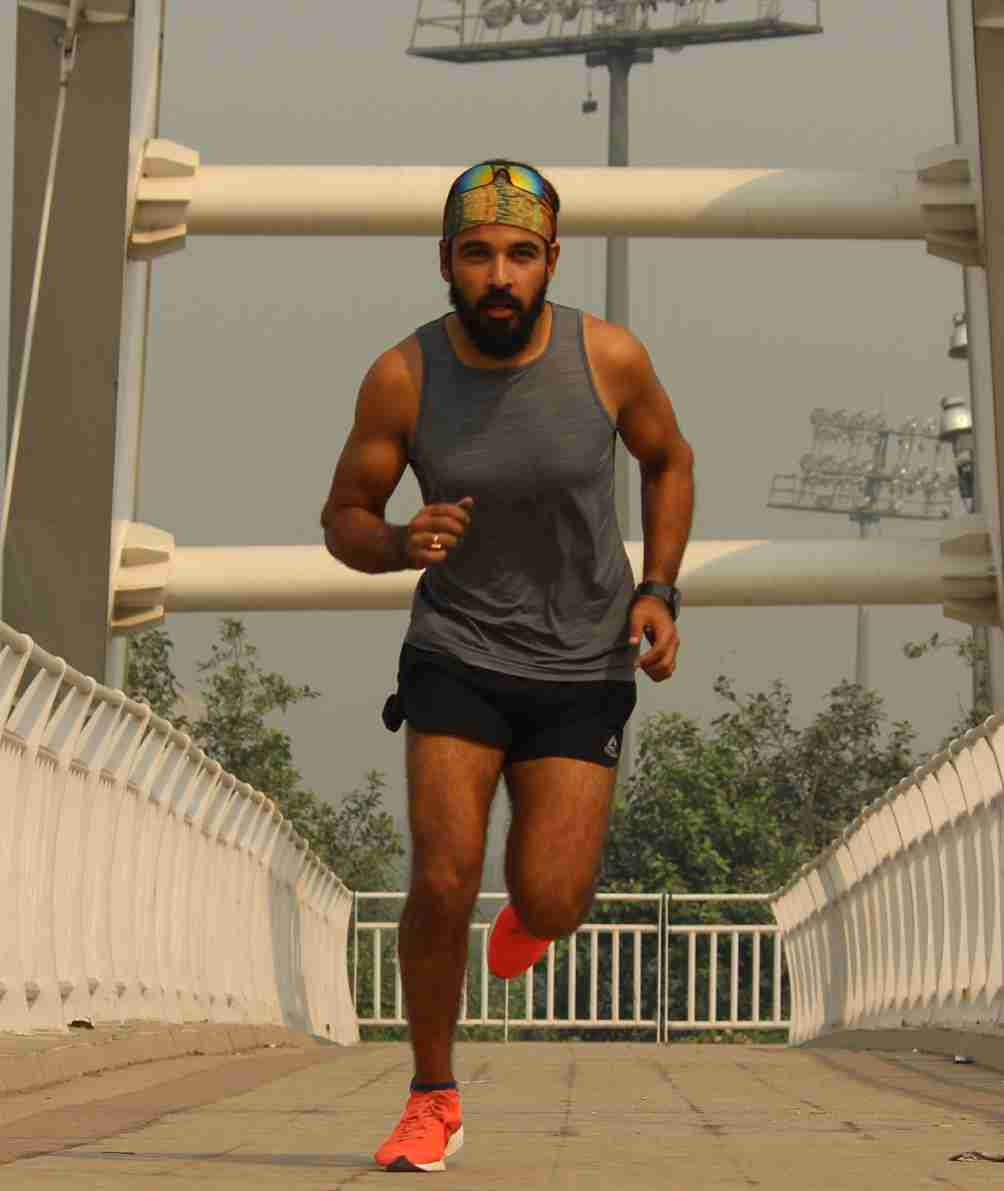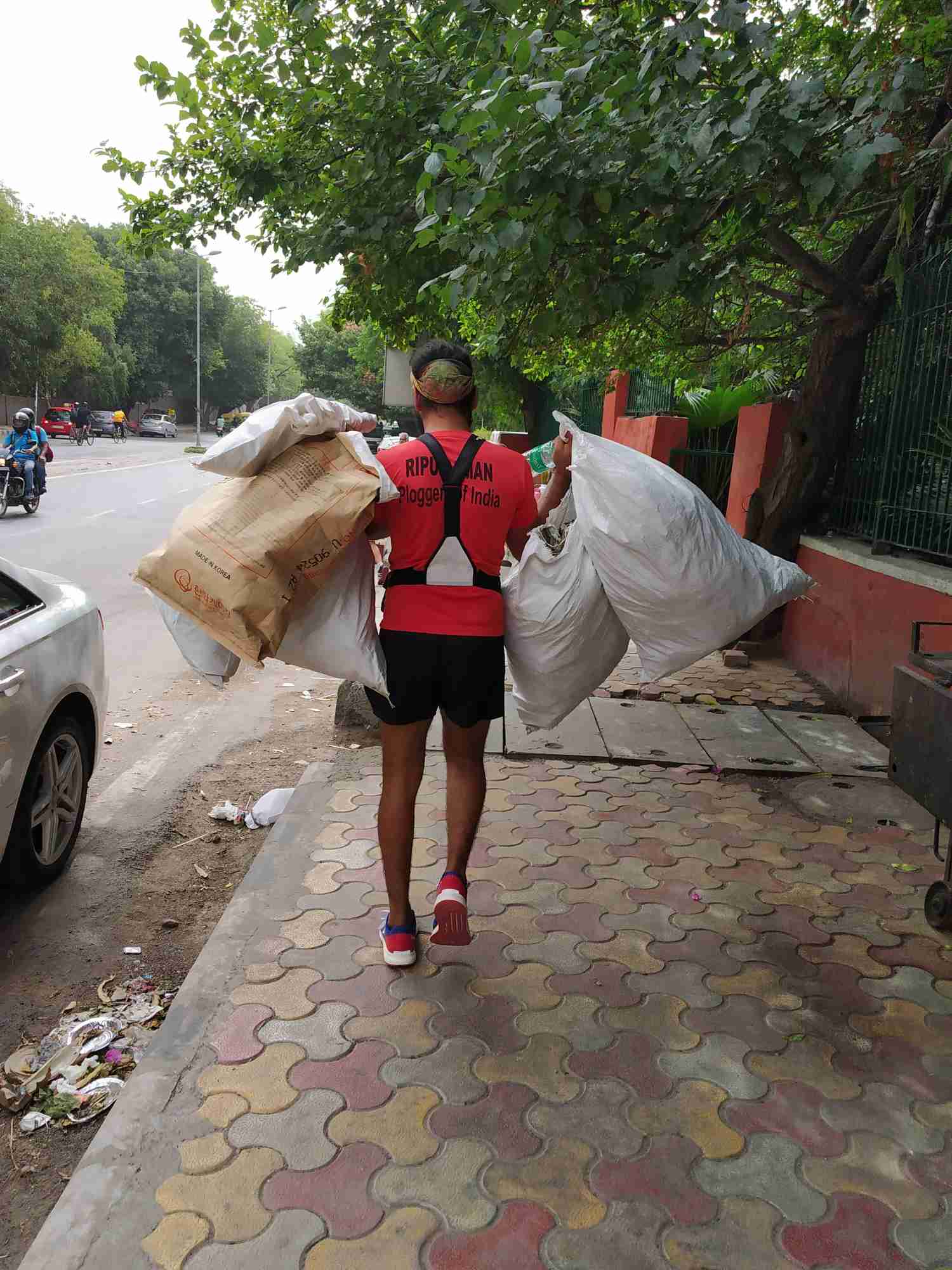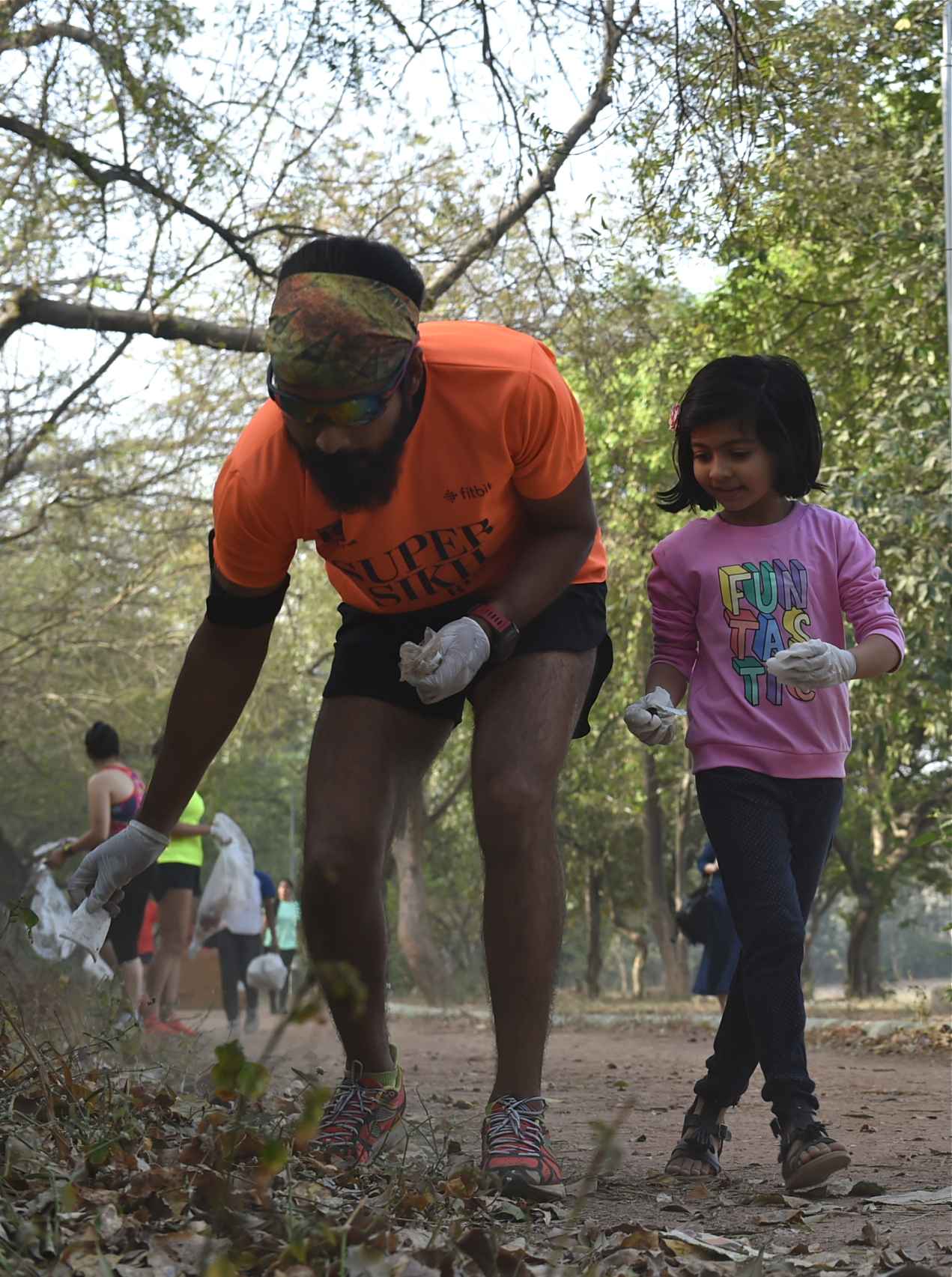500 Clean Ups, 150 Tons of Waste, 80 Cities: Delhi Man Is Helping India Turn Litter-Free
Ripu Daman Bevli in Delhi discovered a new trend of picking up trash on the wayside on his morning runs. He has since been named India's Plogging Ambassador and envisions making India litter-free.

A qualified engineer and techie by profession, Ripu Daman Bevli (33) prefers to be known by his other distinction — the Plogging Ambassador of India. An avid runner with a difference in perspective is what started his plogging journey and his movement to make India litter free.
In 2016, it was when he re-started his running journey in Delhi after an injury, when he noticed all the trash littered on the roads.
“While the mornings were great for our runs, it also gave us the chance to see all the litter strewn around as lesser people and traffic were on the roads,” Ripu tells The Better India. Ripu started off with picking up stray pieces of plastic and litter on his runs but wanted to turn this into a national movement and that’s how he started plogging, an eco-friendly fitness trend that involves picking up trash while jogging.
This was at a time when ‘plogging’ as a term did not exist.

Ripu says, “All we focussed on was running and picking up the litter along the way.” For Ripu it wasn’t just about cleaning up but the need to inculcate the habit of not littering in people. From then on, he has gone on to organise more than 500 clean ups across 80 plus cities in India. Ripu claims that more than 150 tonnes of waste have been collected through plogging in the last four years.
Committed to the Cause

Ripu took a while to share statistics of his plogging expeditions, not because the work was not done but because he never felt the need to quantify how much waste was collected or the number of walks organised. Up until three years ago, Ripu did not even have a social media presence. “I had the opportunity of being in conversation with the Prime Minister and was later featured on his radio programme — Mann Ki Baat. When I was asked to share my Twitter handle for them to tag me, I had to sheepishly tell them I didn’t have one,” he recalls.
“That’s how unfashionable I am,” says Ripu. Having begun his work in 2016, it wasn’t until last year, during the lockdown, that Ripu started actively posting on the platforms. “It’s unfortunate but that’s how it is,” he says.
Life’s Mission to make India Litter Free

“Once you start picking up trash, you will find that even the very pristine looking places have so much hidden trash. My aim is to ensure that we work towards becoming a litter-free nation,” he says.
One could very easily say that the vision that Ripu has for India is not just far-fetched but crazy. He explains, “I am still out there trying to make it happen. It’s a mindset that I wish to change. We call those who collect and segregate our garbage ‘kachrawala’ (garbage man) but it is us who are responsible for creating that kachra. This is the first change we worked on bringing about,” he says.
Ripu also speaks about how he worked on making picking up of trash ‘cool’. “To involve as many people as we could, we added an element of workout to it. We have made this a full holistic workout, aimed at helping you physically and emotionally. Squats and lunges are an integral part of the process, and a good 15 minutes is spent on this before the run starts. It also aims to change the societal misconception that the litter on the road is not our responsibility.”
Asked if getting funded for a social movement was easy? “No,” says Ripu. He adds, “I have been bootstrapping this movement for the last four years.” However, with all the work that has been done so far and close to 1 crore people coming out and being part of the movement, Ripu is hopeful to get more attention and financing. To streamline the process a non-profit has been registered as well. “We are now seeing brands, communities and individuals who are coming forward to support us,” he says.
To be able to do this, Ripu says that one must have a financial plan in place, to understand where you stand personally, vis-à-vis your finances, and how much you can put into the cause. Speaking from experience, he says, “Three years into the movement, I found myself on the brink of bankruptcy and that was when I sat up and took note of the finances and the way forward. It’s better to be planned than caught unaware.”
“Take up causes that you deeply feel for – there are far too many issues in the world that need attention,” he says.
Cherish the small wins

When you are trying to bring about a change on such a large scale, Ripu says that celebrating every small win is important. “We worked with a school in Gurugram, besides which there was a local mandi (market) that was rather unkempt and littered. We decided to do a clean up drive there every two to four weeks and got the school kids involved as well. Each clean up had about 150 students join us, and just by way of conversation, the school students managed to convince the mandi owners to give up using polythene bags and brought about a change,” he says.
These are small victories but these are the ones that we cherish and keep us motivated to keep going, he says. Sharing another experience that he cherishes, Ripu says, “It was in December 2019, when my nieces came home after school all excited to tell me about how my name featured in their general knowledge book for being the Ambassador of Plogging in India..”
Here’s how you can help
- Within your own locality/community, identify areas that are in need of clean up and begin there.
- Ensure that in the process of conducting a plog run, you do not inadvertently generate more waste.
- Refrain from using surgical gloves, surgical masks, and polythene bags, which in turn will add to the overall waste being generated.
- Invest in getting reusable gloves and trash bags. Ripu says that if maintained well, these can last for a few years.
- While cleaning up is great, we need to also start consciously not littering and put an end to that. “When you bend down to pick up someone else’s litter, you will not litter yourself,” says Ripu.
- Try and go on a plastic-detox or plastic ‘upvaas’ (fast), where you decide to give up on using any one form of single-use plastic (plastic straw, polythene bags, etc).
- Identify a local recycler where some of the trash that can be recycled can be sent.
To reach out to Ripu and understand more about his litter free India movement, you can click here to access his Facebook page, and here to access his Instagram page.
If you found our stories insightful, informative, or even just enjoyable, we invite you to consider making a voluntary payment to support the work we do at The Better India. Your contribution helps us continue producing quality content that educates, inspires, and drives positive change.
Choose one of the payment options below for your contribution-
By paying for the stories you value, you directly contribute to sustaining our efforts focused on making a difference in the world. Together, let’s ensure that impactful stories continue to be told and shared, enriching lives and communities alike.
Thank you for your support. Here are some frequently asked questions you might find helpful to know why you are contributing?


This story made me
-
97
-
121
-
89
-
167











